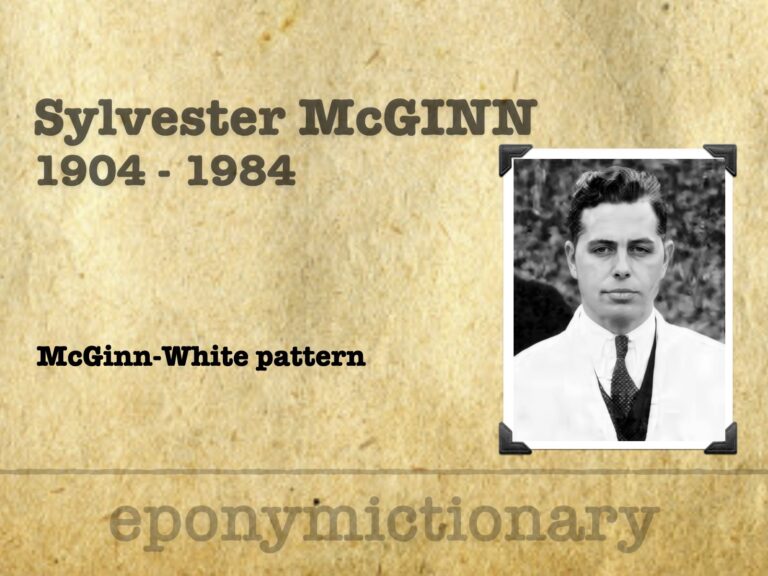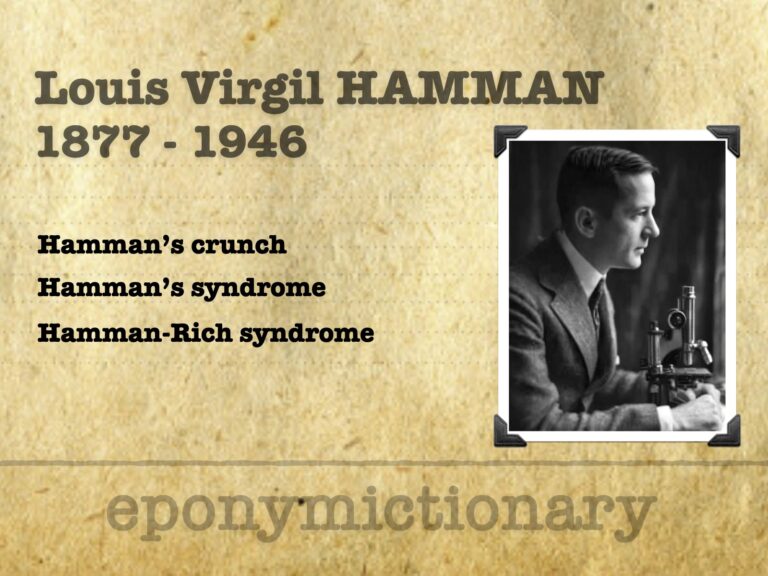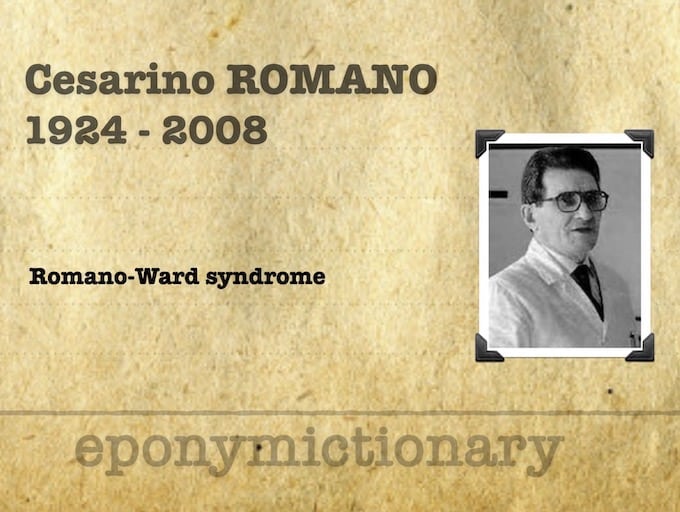
Sylvester McGinn
Sylvester McGinn (1904–1984); American cardiologist; McGinn-White sign (S1Q3T3) in pulmonary embolism; pioneer in Boston cardiac care and research.

Sylvester McGinn (1904–1984); American cardiologist; McGinn-White sign (S1Q3T3) in pulmonary embolism; pioneer in Boston cardiac care and research.

Understand and identify prosthetic valves. Learn what can go wrong with prosthetic valves; how to assess their function and examine transcatheter valves

Understand and identify the pulmonary valve. Learn how to identify and grade pulmonary regurgitation and quantify pulmonary stenosis. Basic management of pulmonary valve dysfunction.

Louis Virgil Hamman (1877–1946), Johns Hopkins physician and diagnostician, described Hamman’s sign, Hamman syndrome, and Hamman-Rich syndrome

Understand and identify the tricuspid valves. Learn how to identify and grade tricuspid regurgitation and quantify tricuspid stenosis. Basic management of tricuspid valve dysfunction.

Understand and identify aortic regurgitation. Learn how to identify and grade aortic regurgitation gradient using measurements and visual clues and quantify aortic regurgitation.

Understand and identify aortic stenosis. Learn how to measure an accurate aortic valve gradient and calculate the aortic valve area. Be able to diagnose low-flow states and paradoxical low flow

Owen Conor Ward (1923–2021), Irish paediatric cardiologist, co-described Romano-Ward syndrome; pioneer of children’s cardiac care and medical historian

Cesarino Romano (1924–2008), Italian paediatrician, co-described Romano-Ward syndrome; led advances in cystic fibrosis, metabolic screening, and emergency care.

Norwegian internist Fred Lange-Nielsen (1919–1989), co-discoverer of Jervell and Lange-Nielsen syndrome, was a lung specialist, allergy pioneer, jazz musician, and human rights advocate.

Anton Jervell (1901–1987), Norwegian cardiologist and medical educator; co-described Jervell and Lange-Nielsen syndrome, pioneer of ECG research and cardiac electrophysiology in Norway.

Echo basics: Aortic Valve. A normal aortic valve is trileaflet, with equally sized cusps that are supported by a fibrous annulus and separated by three commissures.